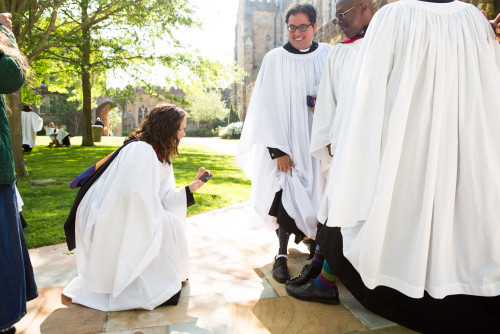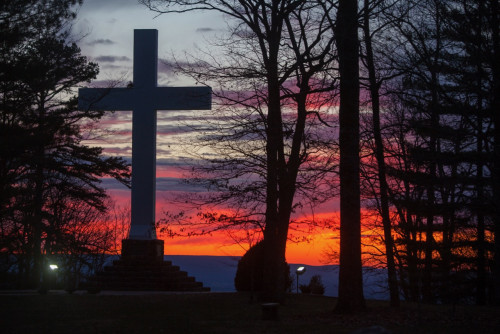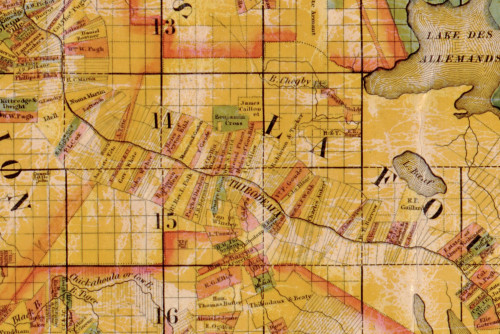Ministry formation is in itself an exercise in diversity training, one that lies at the heart of the residential theological experience in Sewanee.
The Committee for Diversity and Reconciliation leads the community (faculty and students) in discussions around a range of critical social issues such as race and racism, discrimination based on gender, age, class, sexual orientation, ethnicity, and disability. Listening sessions during the Advent semester will determine the direction of the committee's work in the coming year.
This is a standing committee of the School of Theology and it is charged with deepening the education and conversation of this community concerning the sins of prejudice and discrimination of all kinds. In the context of God’s creation and reconciliation of humankind, it seeks to:
- develop and implement ways to foster a change of mind and heart in and beyond this community;
- widen the presence and participation of underrepresented groups throughout the School of Theology;
- promote changes to our structures and culture so that we may be a more adequate sign and instrument of God’s reign.
Ministry formation is in itself an exercise in diversity training, one that lies at the heart of the residential theological experience in Sewanee. Living in close community with a varied student population prepares priests and church leaders for full engagement with the diversity of today’s Church and the modern world.
COMMUNITY BOOK STUDY
The Diversity and Reconciliation committee sponsors a book study each year for students, their partners, and School of Theology faculty. Last year we read and discussed Bryan Stevenson’s Just Mercy, a powerful book that highlights the racial injustice built into our criminal justice system.
This year, we are reading How to be an Antiracist by Ibram X. Kendi. Our discussions are honest and challenging with no easy answers, but based on a commitment to understanding and dismantling our own racist attitudes and the systemic injustice all around us.
MONTGOMERY PILGRIMAGE
Following our discussion of Just Mercy, 12 members of the group went on pilgrimage to visit the Legacy Museum at the Equal Justice Initiative, founded by Bryan Stevenson. We toured the deeply disturbing and moving exhibit: From Enslavement to Mass Incarceration and made a stop at the Civil Rights Memorial located just across the street from the Southern Poverty Law Center.
COMMEMORATIVE LITURGY
Moved by presentations from the Roberson Project on Slavery, Race, and Reconciliation, the committee proposed that we hold an annual liturgy commemorating the 9 faculty members who resigned in 1953 over the University’s refusal to de-segregate and to remember the first African American graduates of the School of Theology. The1st annual liturgy, held on October 9th, was planned with input from committee members. Representatives of the Roberson Project, University Trustees, and family of the honored faculty worshipped with us in Chapel of the Apostles as we commemorated those who bravely took action to stand up against racial injustice in our midst.
ONGOING ACTIVITIES
Following the 2019 DuBose lecture series in which we were challenged to lament, do our first works again, and to hope, the committee has sponsored several follow-up gatherings to address the question, “What does a diverse and reconciling seminary look like?” We have discussed long-term goals as well as short-term actions that will reflect a more diverse and inclusive outlook to which we all aspire. Students and faculty are working together on concrete proposals for the School of Theology administration. Committee members meet several times each semester to pray together, to discuss our experiences with diversity and reconciliation, and to propose activities for the seminary.



